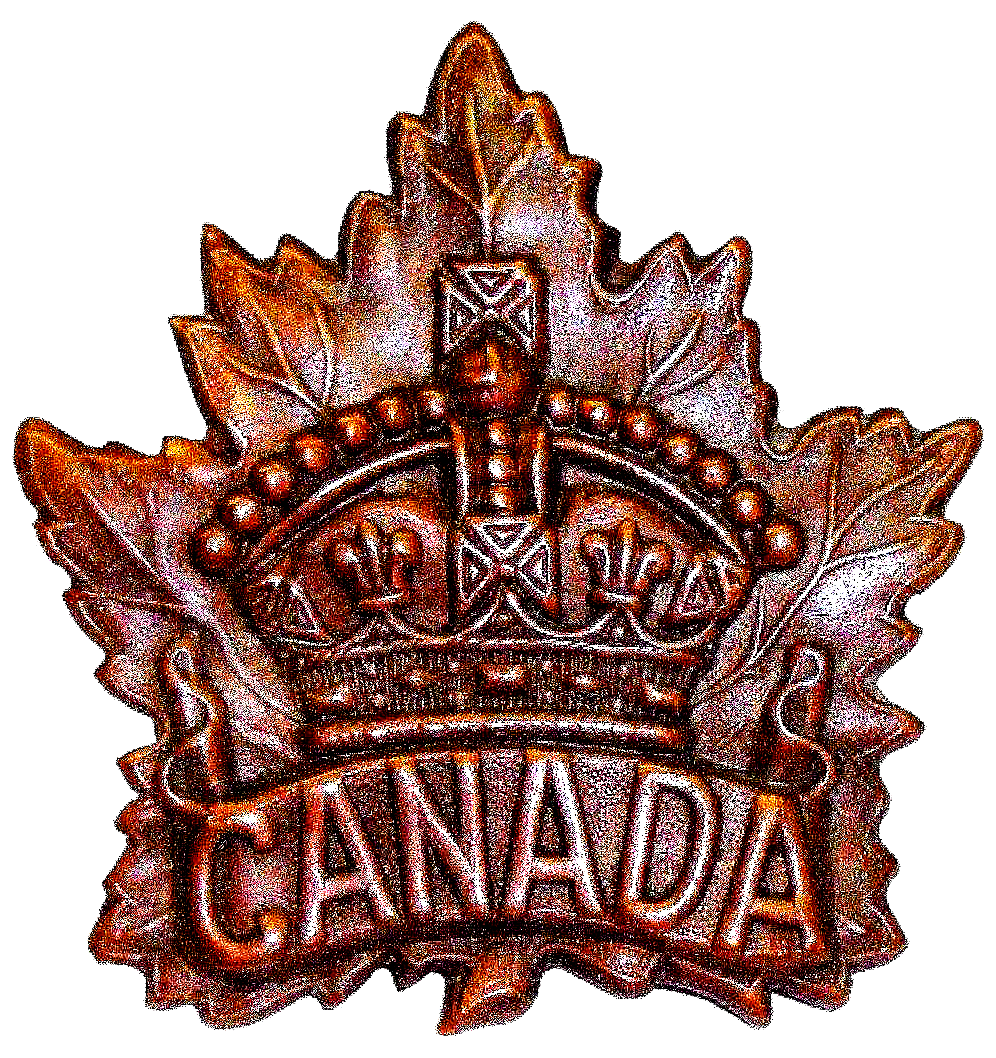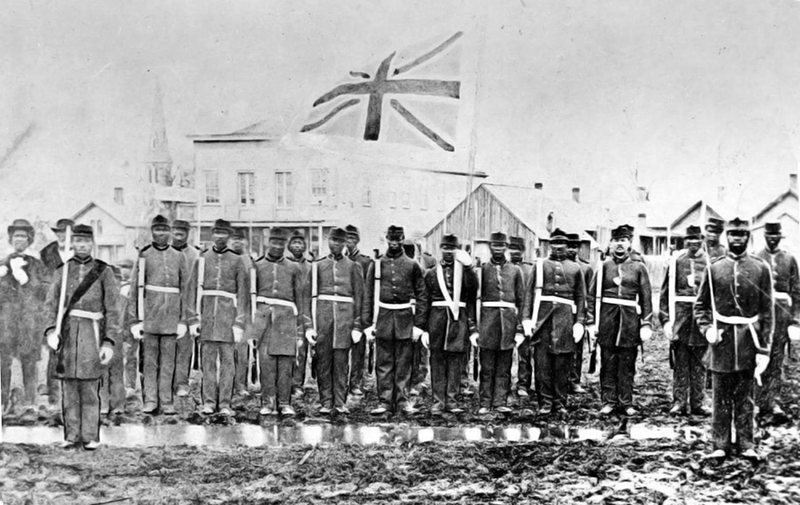 |
 OPCMHVisitor No.: |
HISTORY OF WORK POINT BARRACKSby Jack BatesPART 1 — 1842 to 18861859San Juan Island was in dispute in terms of jurisdiction, British or American territory, and on June 15, 1859 a Hudson Bay Company owned pig was killed by an American farmer. This prompted the potential "Pig War." The Americans sent in a regular army detachment with some field artillery and Britain countered with the presence of Royal Navy ships and cannon, along with a detachment of Royal Marines. In March 1860 a detachment of Royal Marine Light Infantry took up residence on the north end of the island. It was mutually agreed that both countries should occupy the island until its sovereignty was decided. The dispute ended with the Treaty of Washington on October 21, 1872 awarding ownership of the island, and others, to the United States, and the British detachment departed. In August, the Victoria Sheriff's office suggested a company of infantry be formed, 67 men volunteered but they could gain no weapons so they formed a company of firemen. 1860The Victoria Pioneer Rifle Corps was formed, made up of 45 blacks who had come from San Francisco. The unit lasted until June 1866 when they were disbanded amid some controversy and eventual lack of enthusiasm. 1861COLONIST A BROADSIDE FROM ESQUIMALT Editor British Colonist: Permit me, through the column of your paper, to draw public attention to the present aspect of Esquimalt. By a strange fatality, unaccountable for by any outward circumstances, this harbor is as perfectly ignored by the colonists of Vancouver Island, as if it was not in existence. Strenuous efforts are made to prevent its closer connection with Victoria, as witness the road between the two places, which in its rottinence, insecurity and filth, is a disgrace to the community. Whence comes, Mr. Editor, this blindness to their own interests which morally affects our rules and ruled ! Those “who run may read.” With Esquimalt as her chief harbor, Esquimalt as her seat of government, Esquimalt as the focus of her trade, Vancouver Island would have been the Singapore of the Pacific. Vancouver Island has narrowly escaped a great destiny. “There is a tide in the affairs of men, which taken at the flood, etc.” Your readers know the question. Mr. Editor, such a tide has passed by, and Vancouver’s success remains untouched. “Time, she has started in the world’s race, but not as she might have done; her destiny now is that of a pedling trader, compared to the glorious future once offered.” History speaks of the “merchant Princes” of Venice; the merchant Princes of Vancouver might have been won as a designation by sons of this generation; but fullness of time will speak to the golden opportunities they have let slip through their fingers. A few words of appeal to the common sense of the Victoria community: A permanent source of income to the traders and merchants of Victoria has existed hitherto in the disbursements of ship’s of war; and those disbursements have varied within the last two years from $ 150,000 to $ 300,000 annually, and is this sum of no moment to a young trading community ? has a single step been taken to retain it ? has the colony given the slightest attention to the wants of the fleet ? is there a single public landing place for the convenience of officers and men, or one yard of footpath on which they can stand dryshod ? Do the Victorians imagine that a single officer or man belonging to the naval fleet now in Esquimalt would spend the coming winter there if they could help it ? While man remains man, general opinion will make itself felt through channels which common sense will point out, and which I need not further hint at. Victoria without Esquimalt will have but scant prosperity. OBSERVER. ABSTRACTS OF ACTS Powder Magazines – Grants certain privileges to the builder or builders of a powder magazine. The Vancouver Island Volunteer Rifle Corps was formed from the white population on June 30 comprised of one company of infantry and one of artillery. The unit couldn’t survive conflicts within and were disbanded on July 16, 1862. VICTORIA PIONEER RIFLE CORPS By the spring of 1869 40 to 50 Black men were enrolled in the Victoria Pioneer Rifle Corps. The Corps was officially sworn in on July 4, 1861. The Royal Navy supplied drill sergeants and the volunteers utilized a building on View Street for drills. In 1859, when the volunteer Fire Department was being created in Victoria, several blacks volunteered to serve but they were rejected by the white men organizing the committee. The blacks remained undaunted and went to Governor Sir James Douglas to offer their services as a volunteer militia unit. In view of a potential war between the United States and Canada over ownership of the San Juan Island, Douglas accepted. This “war” became known as the PIG WAR when an American settler shot a pig belonging to a British farmer. Consisting of one captain, three officers and forty-four privates, the VPRC drilled twice a week in the drill hall on View Street. Sometimes, it is noted, they paraded on the “commons,” a ten-acre piece of land on Church Hill. Some members of the corps were: E.A. Booth (Paymaster), W. Brown, R. Caesar (Sergeant), Paris Carter, A.H. Frances, R.H. Johnson (Captain), J.B. Johnson (2nd Lieutenant), A.C. Richards (Secretary), F. Richards (Captain), and S.A. Stevens (Corporal). Paris Carter, who came to British Columbia in 1856, is the only known member of the Victoria Pioneer Rifle Company to be buried in Ross Bay Cemetery, Victoria. The company is said to have had the first military band on Vancouver Island. It consisted of nine instruments and was led by a white bandmaster who was hired to teach them music. The drill house soon became a gathering place and social centre for the black community. In the beginning, their weapons were antique flintlocks supplied by the Hudson’s Bay Company. Sir James Douglas ordered better weapons from England but none reached the Black Militia. Through its existence the Victoria Pioneer Rifle Corps was in need of financial support. For the most part the Blacks raised funds through subscriptions or other projects from within the black community itself. Financial support from the government was minimal and at times requests for monetary assistance went unheeded. Despite the early reception of the Black Militia, the corps seemed to have met less than enthusiastic recognition from Governor James Douglas. Appeals for rifles and funding were still unavailable to them and the unit was inactive during 1863. In 1864 when Sir James Douglas retired as Governor, the Victoria Pioneer Rifles were not allowed to officially attend his farewell banquet, causing a great outcry. When the new Governor, Arthur Kennedy, was sworn in, the corps was refused entry to the ceremonies, ostensibly because the other volunteer fire brigades would not march behind them. Shortly after the new Governor’s arrival, the black volunteers marched to the Legislative Buildings to present an address of loyalty to the Governor in which they made reference to the discrimination against them. Kennedy informed them he would try to breach the rift between the whites and blacks, but nothing was done. By the spring of 1865, the unit had virtually disbanded in disgust. One of its former Captains, R.H. Johnson, wrote a letter to the editor of the Colonist newspaper, stating, “…their enthusiasm and ardour as far as this colony is concerned have evaporated. This mean and scandalous manner in which they were treated upon the advent of Governor Kennedy is still fresh in their minds. Having as much human nature under their dark skins as others of a paler hue, they cannot forget the snubbing they received on that occasion.”
COLONIST REVIEW AND DRILL About 400 of Her Majesty’s sailors were ashore yesterday for drill practice with rifles near Mr. Skinner’s farm, Esquimalt District. They were reviewed by Admiral Maitland, and the skill displayed in their evolutions was highly creditable to both officers and men. The sailors were from the crews of the Bacchante and Topaze. About 100 ladies and gentlemen from Victoria were present and seemed to take a very deep interest in the proceedings. A fine band, which discoursed excellent music, was in attendance. |

